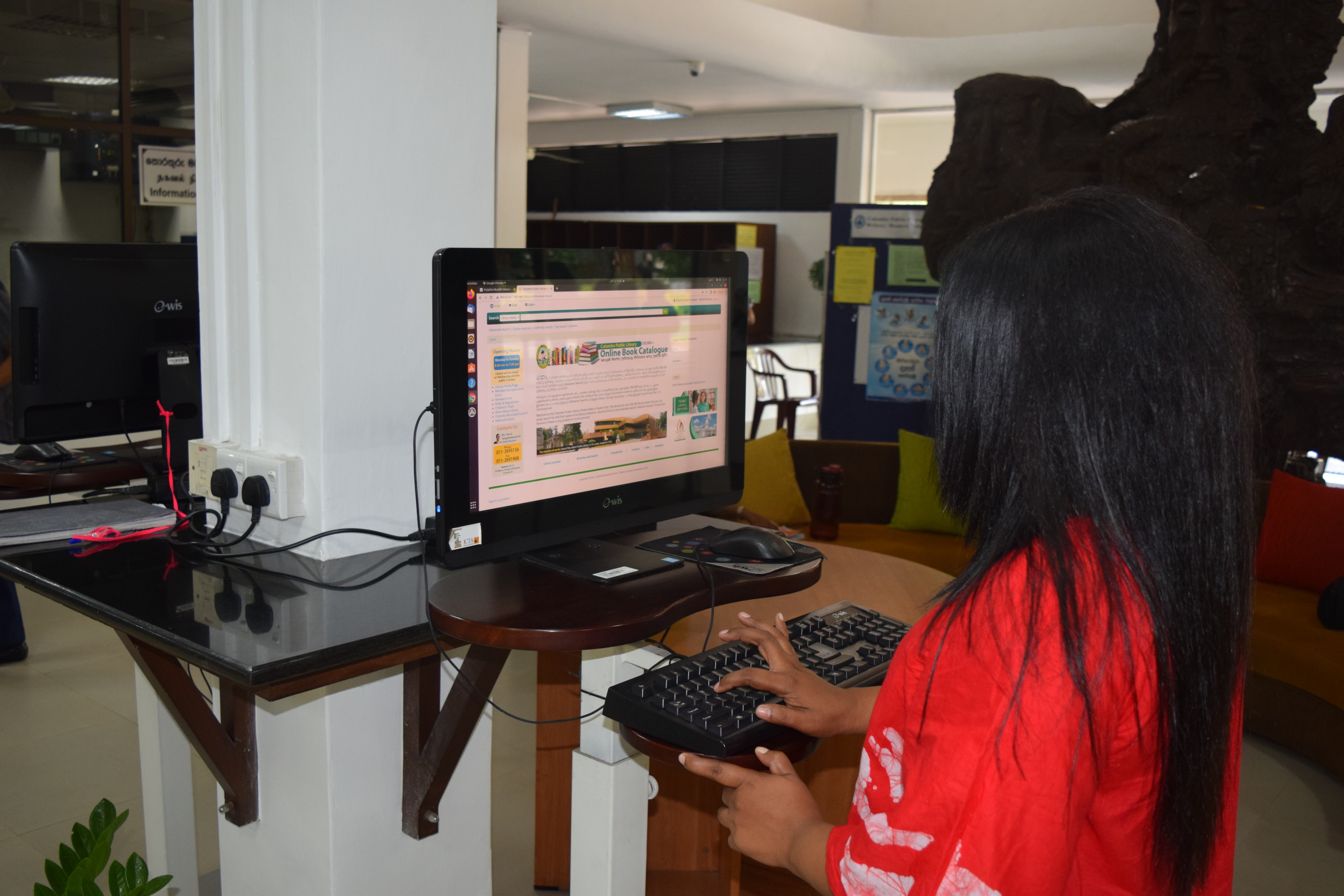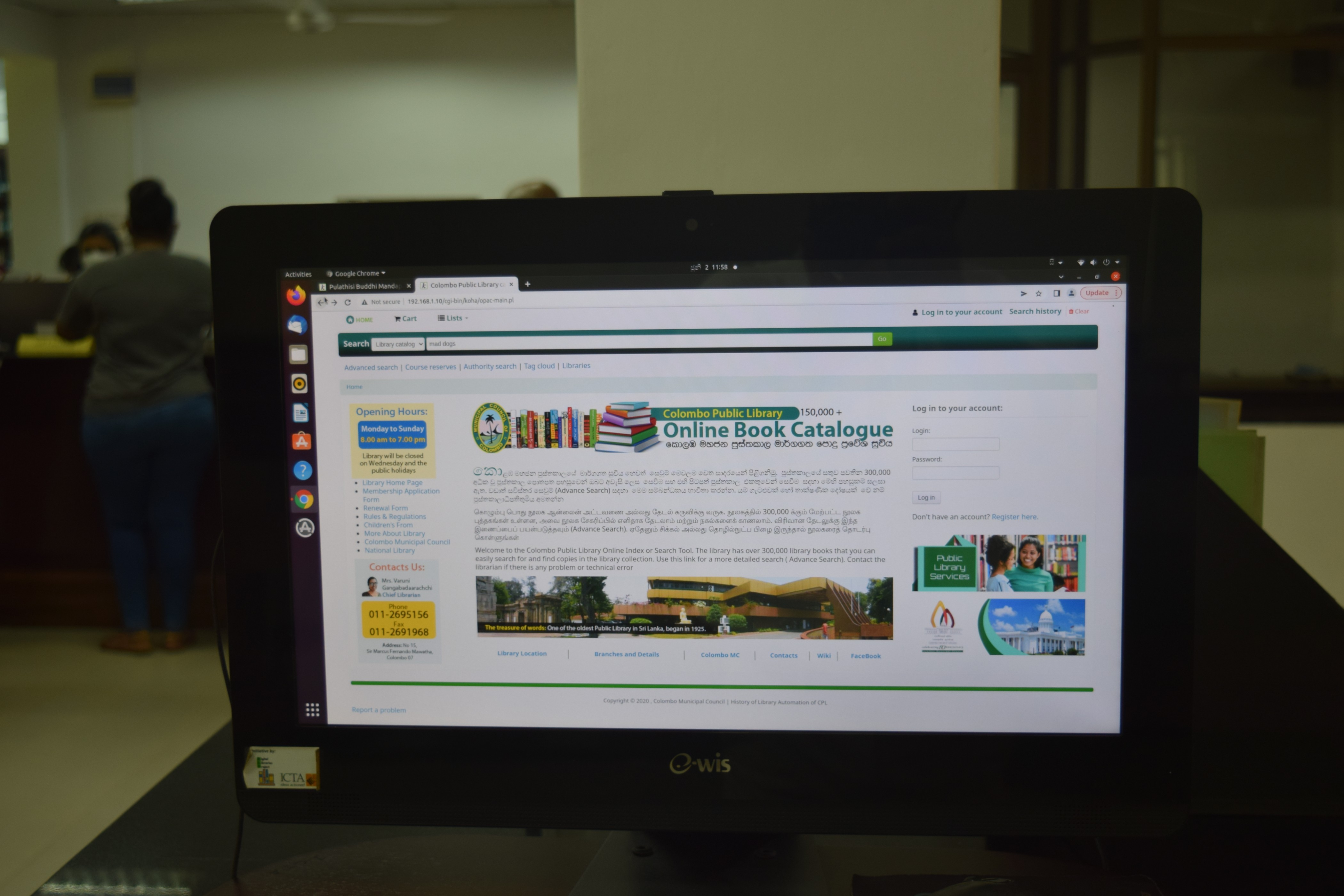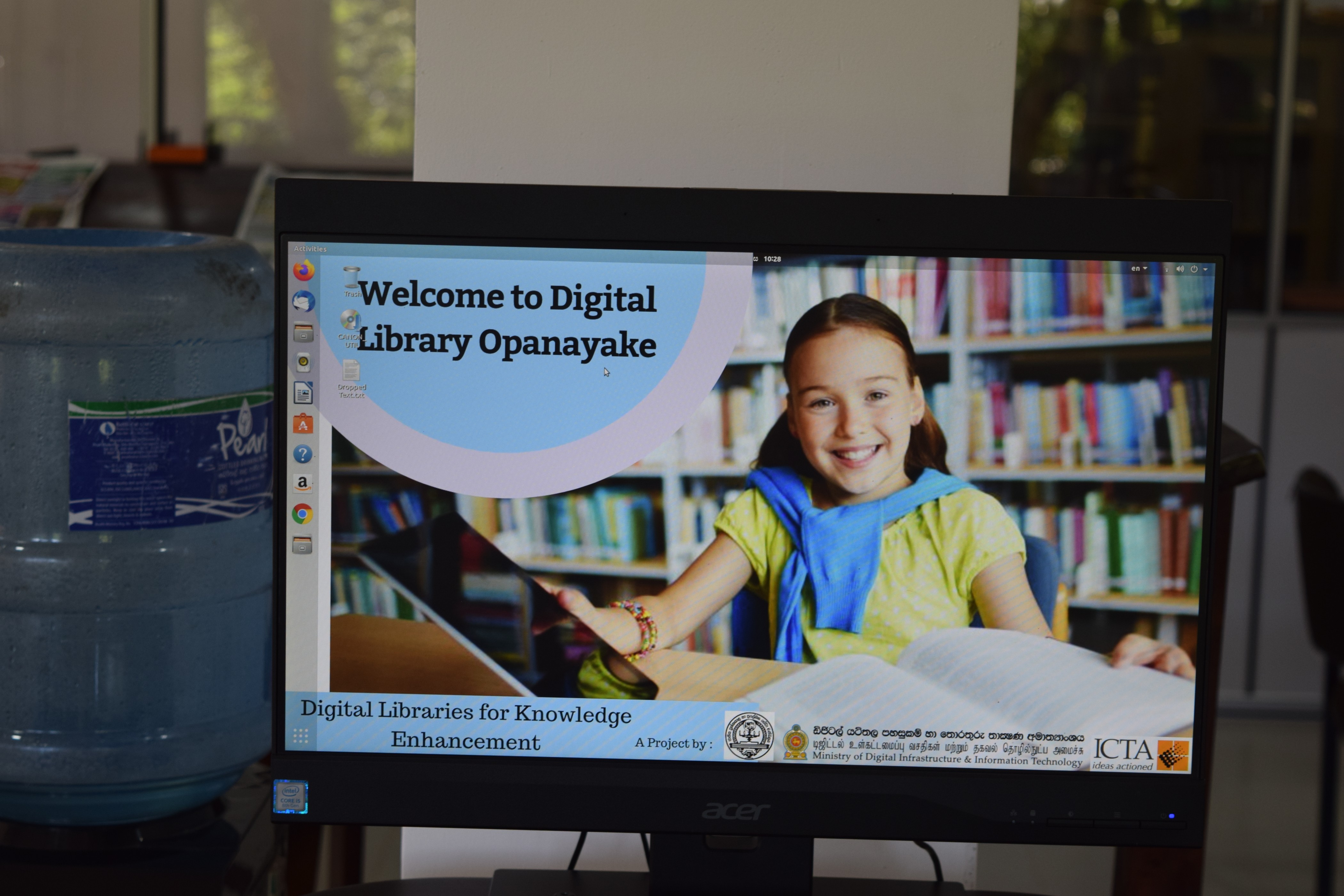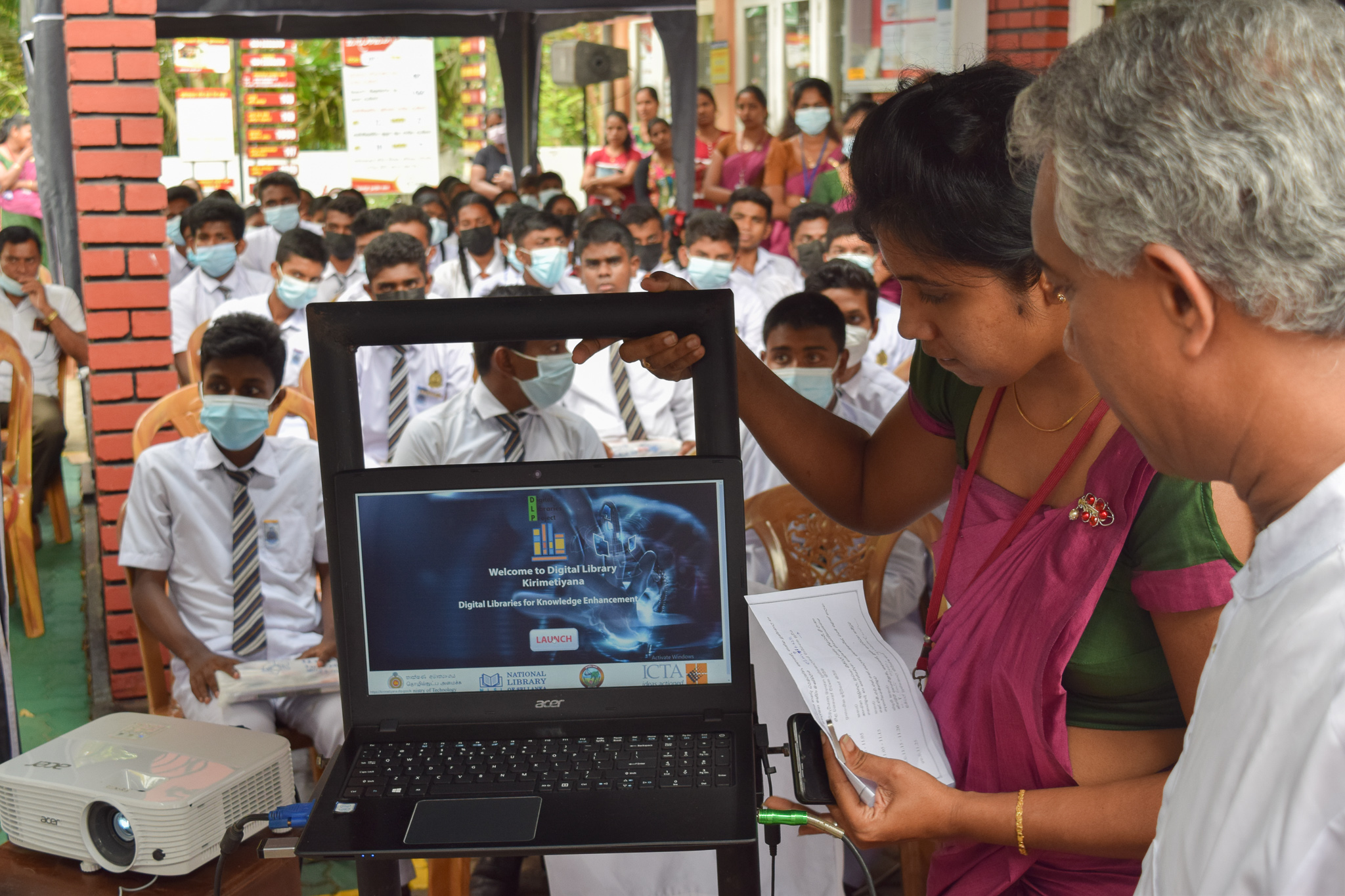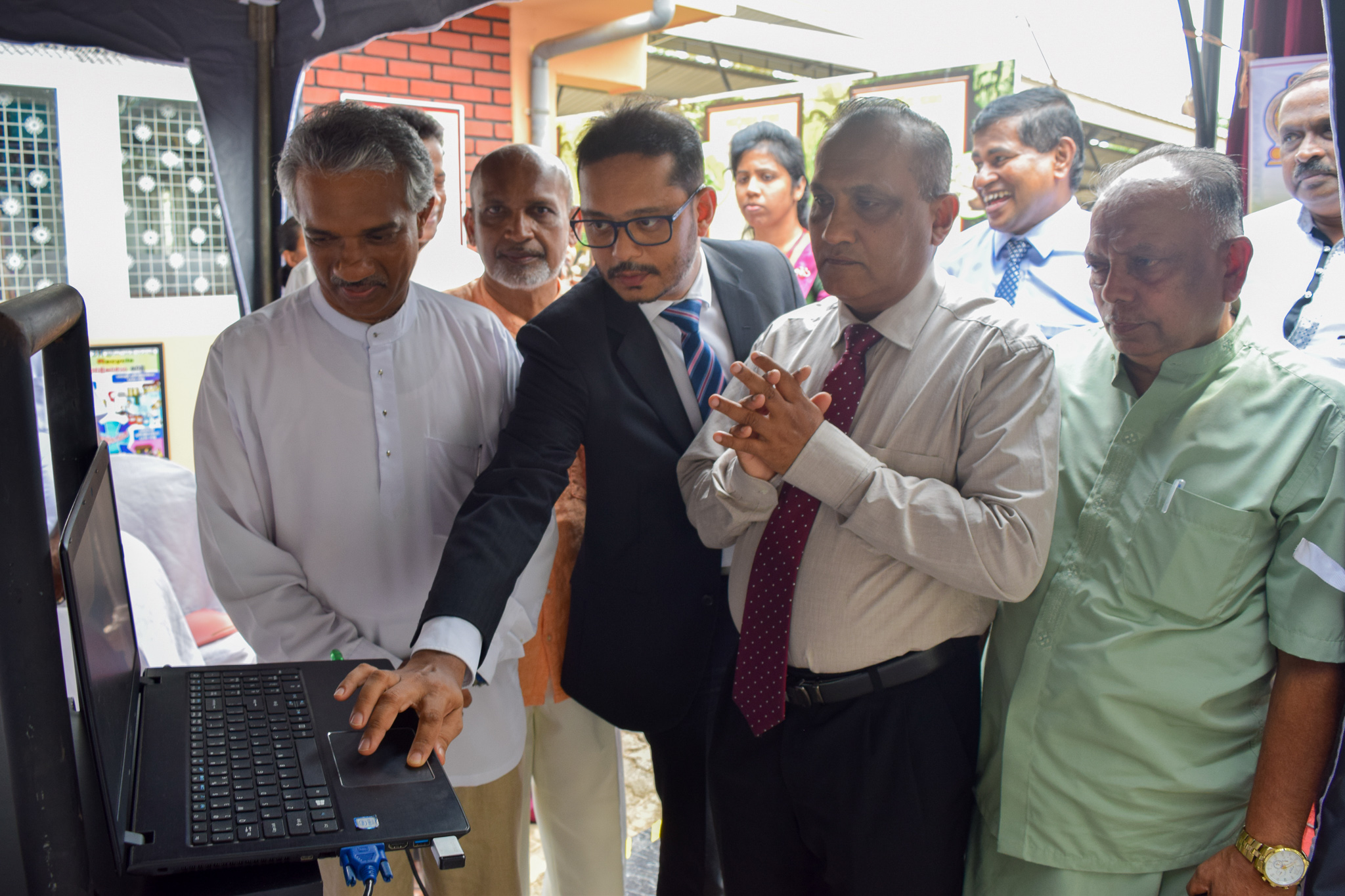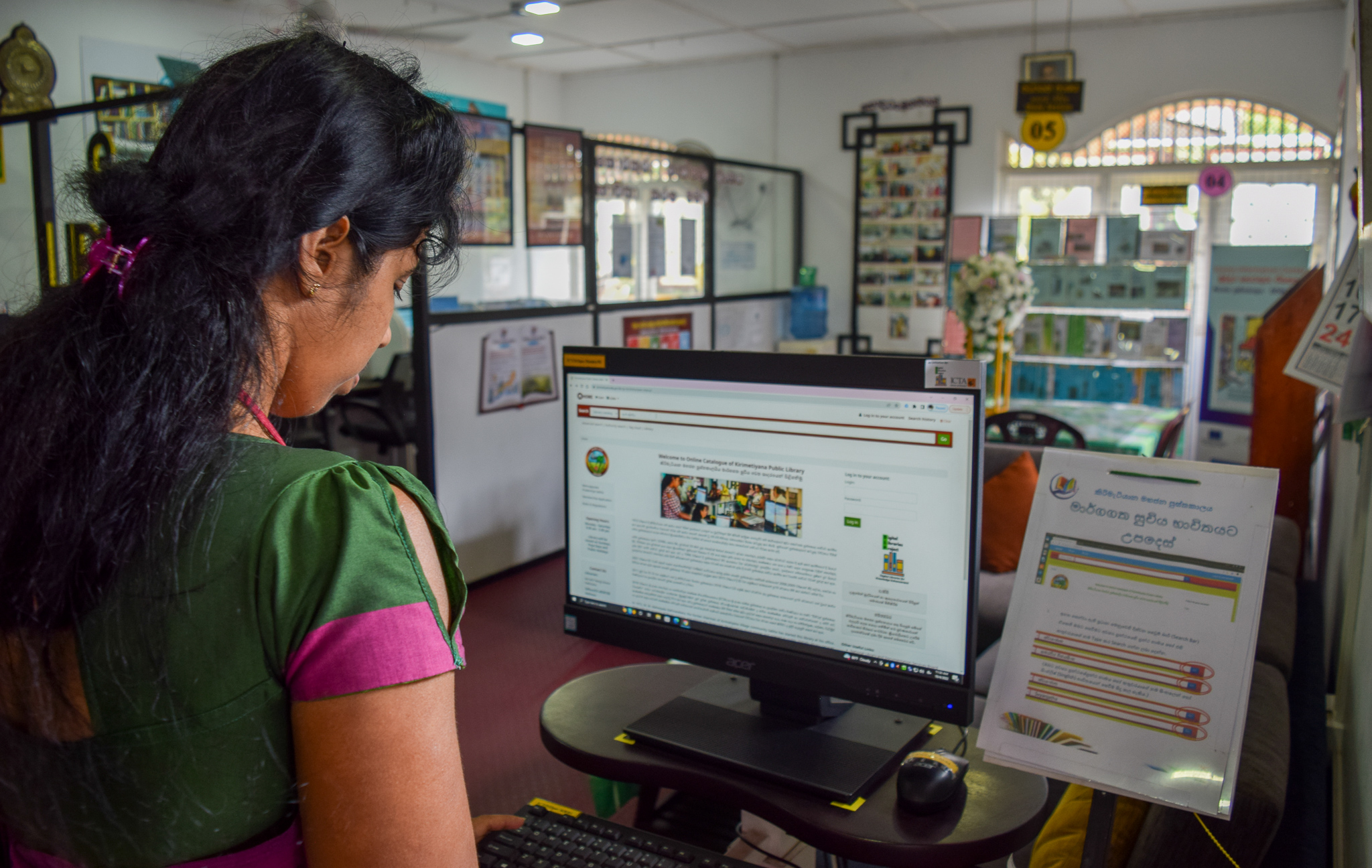Digital Libraries for Knowledge Enhancement
The "Digital Libraries for Knowledge Enhancement" project, initiated in March 2017 and successfully concluded in June 2022, was a critical venture aimed at revolutionizing the accessibility and utility of educational materials in Sri Lanka by recognizing the shift in reading patterns due to technological advancements and evolving preferences. The project addressed several issues faced by libraries, such as inadequate funding, limited access to global reading materials, and outdated infrastructure.
The project aims to address the decline in physical library visits, particularly among youth, by establishing 26 Digital Libraries across Sri Lanka's districts. These digital libraries, equipped with ICT tools and connected to national and international digital repositories, provide easy access to electronic resources and educational materials.
The project's objectives were multifaceted, aiming to enhance access to electronic resources, minimize paperwork, and encourage the usage of digital libraries for educational purposes. By embracing the digital era, the initiative sought to bridge the gap between traditional libraries and the modern, tech-savvy audience.
The scope of the "Digital Libraries for Knowledge Enhancement" project was expansive and transformative, targeting a modern overhaul of traditional library services. This initiative involved establishing 26 digital libraries, strategically distributed across Sri Lanka's districts. These digital libraries were outfitted with state-of-the-art ICT equipment to bridge the gap between the populace and educational resources. Additionally, the project encompassed the implementation of Integrated Library Management Systems (ILMS) in selected public libraries, revolutionizing resource organization and management. A critical aspect was the systematic collection and organization of information from national and international sources, fostering a rich digital repository.
In terms of outcomes, the project successfully created awareness about library services and improved access to digital information and e-books, leading to enhanced reading habits and increased library usage. It had a tangible impact on revenue collection by accurately tracking user registrations and book borrowings. Moreover, the project substantially augmented the number of registered users and the usage of digital e-library services, showcasing its effectiveness and positive influence on the community.
Project Images
